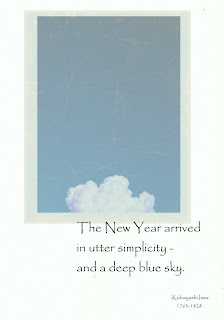
One of my friends used to proudly tell me that she does not like to read the works of Indian authors and prefers the foreign authors’ writings indeed. After picking up this book, I understood how dumb her arrogance has been and how foolish she has been. The loss definitely is not that of Indian literature but hers. Without going deep into the overall structure of the book, let me just tell you about the tales.
So far from ‘A Clutch of Indian Masterpieces’…
1. The Hunger of Stones, Rabindranath Tagore – Originally written in Bengali, this short story is translated into English by Amitav Ghosh. This story will put the modern day scary movie makers to shame. Without even bringing in any gore or perverse elements onto the scene, Tagore exacts fear and thrill in the minds of the readers and weaves the story with a great element of suspense and mystery. The end will make you feel so restless and you might even end up wanting to recall Tagore from his Final Abode to change the climax.
2. The Shroud, Munshi Premchand – Translated from Hindi by Arshia Sattar, this is a story about two loafers, father and son as they come, who have not even a semblance of responsibility in their being and how they end up denying even the final dignity to the woman of their household. While you will cringe at their behavior and wonder how low the human beings can stoop, you will also realize that this is not a mere work of fiction but the state of many households in these modern times too.
3. A Horse and Two Goats, R.K.Narayan – R.K.Narayan is one of those Indian writers who made fame for themselves by writing in English directly without resorting to the vernacular to vent their ideas. I have somehow always found RKN a tad too slow for my liking. It is like you have to wait forever, going through the mundane details, for that worthy punch-line in the end. This story is no different. It is a funny quirk of fate in the life of an old peasant. You will end up smiling at the deserving fortune of the old wretch.
4. A Life, Buddhadeva Bose – You won’t read anything more intense and emotional than this one – this is what exactly I thought when I first went through the story. People always used to tell me that there is a time for everything. I always respond with cynicism that anything that does not arrive in the time when we need it is of no use and value. This story comes to bolster that view of mine. Set in the pre-independence India and ending at the post-independence period, this story outlines the life of an ordinary school teacher who takes up a big task to add meaning to his life – literally – the compilation of a vernacular dictionary. Arunava Sinha has beautifully translated this Bengali story into English, without making the words lose their life.
5. Toba Tek Singh, Saadat Hasan Manto – Whom do you approach to translate the Urdu story into English, when that story revolves around the partition of India-Pakistan and the story is sort of tragi-comedy? If you said Khushwant Singh, then full marks to you. Khushwant Singh has brought in his unmistakable sense of humour to this story that proves that those whom we call as insane are saner than most of the sane beings.
6. The Flood, Thakazhi Sivasankara Pillai – TSP has become one of my favorite Indian authors ever since I first read Chemmeen and later a bunch of short stories of his, translated into English. The reality and sharp emotions depicted in his stories are truly remarkable. Dogs are always known to be loyal to men. But would a human being remain loyal to his loyal pet when disaster strikes? I am not sure and neither is Thakazhi. O.V.Usha has translated this Malayalam story into English.
7. The Blue Light, Vaikom Muhammad Basheer – Another Malayalam story in the collection, translated by O.V.Usha., this is also a ghost story which deserves all the appreciation that I had heaped on Tagore’s ghost story in the beginning. Unlike the modern ghost tales and movies where the evil spirits appear only at the most inopportune of moments, like when the female protagonist is ill-clad or bathing, or appear with nauseatingly ugly faces, this is a tender tale. When the story ends, you will even end up falling in love with the ‘ghost’.
8. The Somersault, Gopinath Mohanty – This is another intense tale in the collection, originally written in Oriya and translated into English by Sitakant Mahapatra. An occasional success does nothing much to change the fortunes of a poor labourer, who has been marked out by destiny for a life of oblivion and misery. How many such worthy people languish in darkness, poverty and oblivion for the lack of the right stroke of luck!
9. Portrait of a Lady, Khushwant Singh – I have always been told that Khushwant Singh is a lewd writer who can write about nothing other than women and whiskey. How wrong an opinion have I been fed! Fresh from reading his classic ‘Train To Pakistan’ and having got mesmerized at his ability to weave captivating tales, I found this to be yet another gem. It is not true that we humans speak a different language from other beings on this planet – animals, birds and plants. It is also not true that we are in anyway superior to any of the other creatures that coexist with us. This tale will tell you that.
(to be continued...)




